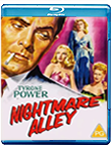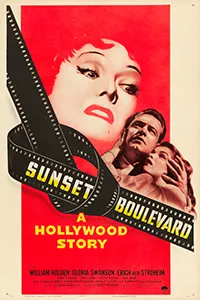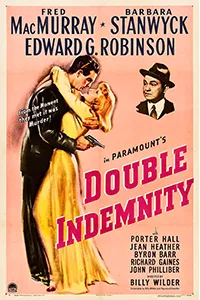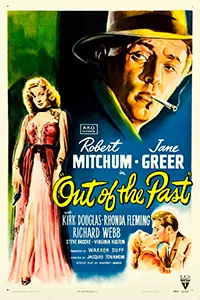NIGHTMARE ALLEY
Nightmare Alley is a 1947 film noir directed by Edmund Goulding, starring Tyrone Power and Joan Blondell. It follows the rise and fall of a manipulative carnival worker who becomes involved in a dangerous world of deceit and betrayal. The film is widely considered a classic of the film noir genre and is known for its dark and atmospheric visuals and complex characterizations.
PLOT
The film begins with Stanton working as a carnival barker for a psychic named Zeena (Joan Blondell) and her alcoholic husband Pete (Ian Keith). Zeena and Pete’s act involves reading minds and performing a “code” routine, but when Pete’s drinking threatens to ruin the act, Stanton convinces Zeena to teach him the code. He then conspires with a young and beautiful carnival worker named Molly (Coleen Gray) to take over the act and leave Zeena and Pete behind.
Stanton and Molly hit the road and perform their own successful mind-reading act, eventually catching the eye of Lilith Ritter (Helen Walker), a wealthy socialite and alcoholic who invites them to perform at her high-end nightclub. Lilith becomes infatuated with Stanton and offers him a job as her personal assistant, promising him wealth and success.
As Stanton becomes more involved in Lilith’s world, he begins to use his newfound power to manipulate and control those around him. He conspires with a crooked psychiatrist named Dr. Lilith Ritter (Helen Walker) to steal money from Lilith’s estranged husband, and he even plots to take over the nightclub and push Lilith out.
As Stanton’s schemes become more complex and dangerous, he becomes increasingly paranoid and desperate to maintain his position of power. Eventually, he becomes involved with a sideshow performer named Zeena (now played by Helen Menken), who exposes his past and threatens to ruin his carefully constructed life.
In the film’s climactic scene, Stanton is confronted by a drunken Lilith and a remorseful Molly, who reveal their true feelings and intentions towards him. With nowhere left to turn, Stanton spirals into madness and hallucinates a terrifying carnival sideshow in his mind, a visual representation of his own inner demons.
The film ends with a defeated and broken Stanton returning to the carnival, where he begins a new life as a lowly barker once again.
Overall, Nightmare Alley is a dark and complex film noir that explores themes of ambition, greed, betrayal, and morality. The plot is filled with twists and turns, culminating in a thrilling and haunting finale that leaves a lasting impression on the viewer.
RECEPTION
 Upon its release in 1947, Nightmare Alley received mixed reviews from critics and struggled at the box office. Some critics praised the film for its dark and atmospheric visuals and its exploration of complex themes, while others criticized it for being too bleak and morally ambiguous. However, despite its initial lack of success, the film has since gained a cult following and is now widely regarded as a classic of the film noir genre.
Upon its release in 1947, Nightmare Alley received mixed reviews from critics and struggled at the box office. Some critics praised the film for its dark and atmospheric visuals and its exploration of complex themes, while others criticized it for being too bleak and morally ambiguous. However, despite its initial lack of success, the film has since gained a cult following and is now widely regarded as a classic of the film noir genre.
In recent years, many film historians and critics have revisited Nightmare Alley and have praised it for its bold storytelling and its unflinching examination of human nature. The film’s themes of ambition, greed, and betrayal continue to resonate with audiences today and have inspired many subsequent films and television shows.

Tyrone Power’s performance as Stanton Carlisle has also been widely praised. Power, who was known primarily for his roles in swashbuckler films, delivers a nuanced and complex performance that is both sympathetic and deeply unsettling. His portrayal of a man willing to do whatever it takes to achieve success is both chilling and captivating.
The film’s visuals and cinematography have also been lauded. The use of shadows and camera angles creates a sense of unease and contributes to the film’s overall feeling of dread. The film’s depiction of the seedy world of the carnival is also praised for its accuracy and authenticity.

Despite its initial lack of success, Nightmare Alley has since become a cult classic and has inspired many subsequent films and television shows. Its exploration of dark themes and its unflinching examination of human nature continue to resonate with audiences today, making it a must-see for fans of the film noir genre.
THEMES
Nightmare Alley explores several complex themes that are still relevant today. Some of the most prominent themes in the film include:
Ambition
The film’s protagonist, Stanton Carlisle, is driven by an intense desire for success and is willing to do whatever it takes to achieve it. His ambition ultimately leads him down a dark and dangerous path that he is unable to escape from.
Greed
Along with ambition, greed is another driving force behind Stanton’s actions. He is willing to exploit and manipulate others for his own personal gain, without any regard for the consequences.
Betrayal
The film depicts the ways in which people can betray and exploit one another for personal gain. Stanton’s rise to success is facilitated by his willingness to betray those who have helped him along the way.
Moral ambiguity
Nightmare Alley blurs the line between good and evil, depicting characters who are neither entirely good nor entirely evil. This moral ambiguity adds to the film’s overall sense of unease and contributes to its lasting impact.
Addiction
Stanton’s addiction to power and success is a central theme in the film. His relentless pursuit of success ultimately leads him to his downfall, highlighting the dangers of addiction and obsession.
Nightmare Alley is a thought-provoking exploration of human nature and the dark side of ambition. Its themes of greed, betrayal, and moral ambiguity continue to resonate with audiences today, making it a timeless classic of the film noir genre.
POPULAR CULTURE
Nightmare Alley has had a significant impact on popular culture since its release in 1947. Some of the ways in which the film has been referenced or paid homage to in popular culture include:
Literature: The film has inspired several works of literature, including William Lindsay Gresham’s novel “Nightmare Alley,” which was the basis for the film, and Jonathan Lethem’s novel “You Don’t Love Me Yet,” which references the film’s carnival setting.
Film: Nightmare Alley has inspired numerous films and filmmakers, including Martin Scorsese, who has cited the film as an influence on his work. The film’s themes of ambition and betrayal can be seen in many of Scorsese’s films, such as “Goodfellas” and “The Departed.”
Television: Nightmare Alley has been referenced or parodied in several television shows, including “The Simpsons,” which features a character named Gil Gunderson who is based on Tyrone Power’s character in the film.
Music: The film has also inspired several musical works, including Tom Waits’ song “The Piano Has Been Drinking,” which references the film’s carnival setting.
Remake: A remake of the film was made in 2021. It features Bradley Cooper in the lead role along side Cate Blanchett with Guillermo del Toro directing.
Overall, Nightmare Alley’s influence can be seen in a wide variety of popular culture works, from literature to film to music. The film’s enduring themes of ambition, greed, and betrayal continue to resonate with audiences today, cementing its status as a classic of the film noir genre.



